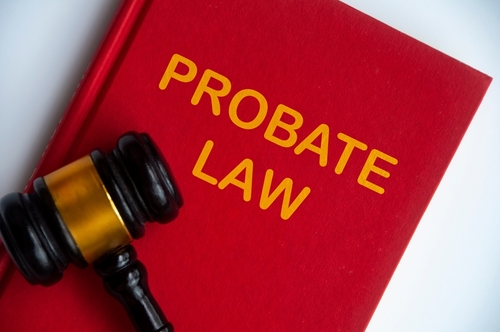An inheritance might seem like a positive event or a beneficial financial windfall, but there are several circumstances in which declining an inheritance might be a good idea. If you comply with certain requirements, the law does allow you to refuse an inheritance if you choose. This rejection is called a “disclaimer,” and is defined as an irrevocable and unqualified refusal to accept an interest in a property.
When Is a Disclaimer Beneficial?
(1) A disclaimer allows avoidance or reduction of an estate, gift, and income taxes.
In 2019, the federal estate tax exclusion amount is $11.4 million for an individual and $22.8 million for a married couple while the New York state exclusion amount is $5.74mm (and, without estate tax planning built into your estate plan, this is for each of you and your spouse–not necessarily per couple). This means that inheritances are subject to estate tax only if they exceed these amounts. Because most people do not command such a sizable estate, using a disclaimer to avoid federal estate taxes is less common now than it was in the past. However, some states apply tax rules to estates of a much lower value. If your estate will be subject to those taxes, disclaiming an inheritance may make sense if the next beneficiary in line (as named in the will or under state intestacy law) is taxed at a lower rate than you.
A disclaimer also offers a way for you to provide a gift to the next beneficiary in line without worrying about the gift tax. If you decide to disclaim an inheritance for tax purposes, it is considered to have never belonged to you. You cannot make a gift of something that was never yours, so your gift does not count towards your annual gift tax exclusion amount (in 2019, $15,000 for an individual and $30,000 for a married couple) or your lifetime exclusion amount of $11.4 million for an individual.
If your inheritance is an asset that produces income, such as an IRA, and it will likely shift you into a higher tax bracket, you can file a disclaimer if you do not need the extra income. The next beneficiary in line will also benefit from this course of action, especially if that person is in a lower tax bracket.
(2) Eligibility for certain benefit programs.
If you are trying to qualify for certain government benefits at some point in the future and the inheritance would jeopardize your eligibility, disclaiming the inheritance may protect your ability to become eligible.
Warning: For some benefit programs, a disclaimer must occur several years before you apply for aid. Generally, government benefit programs will not allow you to disclaim an inheritance when you are already receiving aid. If you do disclaim an inheritance, you may be disqualified from receiving those benefits. Check with an estate planning attorney to make sure that a disclaimer will not be invalid under state or federal law.
(3) A disclaimer allows the inheritance to pass to another beneficiary.
If you do not need an inheritance and the next beneficiary in line does need it, a disclaimer can pass it forward to that beneficiary with minimal expense or hassle. The inheritance will not be a gift from you, so you will not have to worry about the gift tax.
A disclaimer can also be used to correct uneven inheritances. For example, if a parent intended for his two children to receive inheritances of equal value, but one of the children receives an asset that has decreased significantly in value from the time the will was drafted, the child who received the inheritance of higher value can disclaim all or part of her inheritance to help realize the parent’s original intention. The disclaimer will only work if the person who received the smaller inheritance is the next beneficiary in line. Keep in mind that the person who disclaims the inheritance cannot control who will receive the inheritance after the disclaimer: The identity of the next beneficiary will be named in the deceased person’s will or trust. If there is no will or trust, the person will be specified in the state intestacy law.
What Does a Disclaimer Require?
Some aspects of disclaimers are governed by federal tax law and others by state property law. Under federal tax law, a “qualified disclaimer” must meet the following requirements:
- The disclaimer must be in writing;
- The writing must be delivered to the person controlling the property (the executor or trustee);
- The writing must be delivered within nine months after the interest was created or the disclaimant turns 21, whichever is later;
- The disclaimant must not have accepted the disclaimed interest or any of its benefits (except for a distribution from an inherited IRA under limited circumstances); and
- The property must pass without the direction of the disclaimant according to the decedent’s plan of distribution.
State law controls which types of property can be disclaimed as well as the requirements for a valid disclaimer. The laws of some states mirror the federal tax law, but others have different requirements. We can help ensure that your disclaimer is valid under both state and federal law.
Contact Us Today
Disclaiming an inheritance may be able to help you achieve your estate planning and tax-saving goals. Our team can help you evaluate your individual circumstances to determine whether a disclaimer will benefit you, and we can also help you avoid potential pitfalls. Contact us today for more information.
You can schedule a call with us or reach us directly at 855.528.9637 to learn more about how best to plan today to protect those most important to you.








